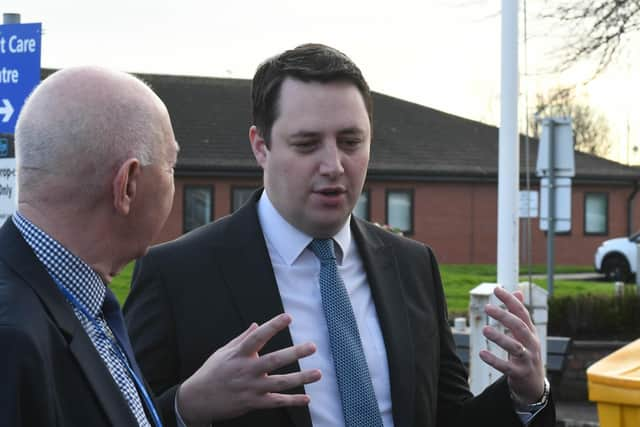Metro mayors Tracy Brabin, Ben Houchen and Andy Burnham are 'capturing the public's imagination and outperforming their parties', says Northern Powerhouse Partnership
New mayors like Tracy Brabin in West Yorkshire and existing figures like the Tees Valley's Ben Houchen and Greater Manchester's Andy Burnham are "providing a more visible presence to local decision-making" than elected councillors, according to the Northern Powerhouse Partnership (NPP).
The lobbying group's analysis shows that all three politicians outperformed their own parties in this month's local elections, where turnout was higher than in previous years.


Advertisement
Hide AdAdvertisement
Hide AdIn West Yorkshire Ms Brabin's lead over her Conservative rival was 14 points, more than double the six point gap between Labour and the Tories across the county's local council elections.
The former Batley & Spen MP said local leaders in her area would now get results more quickly due to "having an individual who can speak directly to government on behalf of the whole of West Yorkshire".
She told The Yorkshire Post: "And certainly, if the government is going to deliver on its promises for skills and the green agenda, they're going to need us.
"They're going to need West Yorkshire, to be where I want it to be the centre of the green revolution, with green jobs and green skills, they're going to need companies to come to the North, to provide corporation tax and so on into their coffers."
Advertisement
Hide AdAdvertisement
Hide AdThis weekend former Cabinet Minister Mr Burnham said Labour would not have lost so many seats to the Tories in its traditional heartlands in the North in the 2019 General Election if he had been leader.
In an interview with the Observer, he makes clear he would run for the leadership again after the next General Election if he had widespread support.
And NPP said both he and Conservative Ben Houchen extended their majorities when they were re-elected last week, outperforming their own parties in the process.
In the Tees Valley Mr Houchen recorded a near 20 per cent swing in an area that was neck and neck when the first mayoral election took place in 2017. NPP's report said: "His performance demonstrates yet again that strong, powerful and visible Mayors are reshaping local democracy."
Advertisement
Hide AdAdvertisement
Hide AdTurnout was also up in the 2021 local elections, from 28.7 per cent to 34.2 per cent in Greater Manchester and from 21 per cent to 34 per cent in the Tees Valley. In the West Yorkshire mayoral election turnout was 36.5 per cent.
Henri Murison, director of the Northern Powerhouse Partnership, said: “In only the first contest for the role, it is already clear that voting behaviour in West Yorkshire is different between the local and mayoral elections.
“It’s early days for West Yorkshire’s first Mayor, Tracy Brabin. However, judging from what we’re seeing across other Mayoral regions, the next three years are a chance to prove to voters that local leaders can really get things done – provided central government trusts them to get on with the job.
“This is why devolution matters. When people can see the changes for themselves in their own communities, they’re more willing to participate in democracy.”
Advertisement
Hide AdAdvertisement
Hide AdThe report said the new regional political power bases are "already having an increasing impact on the national stage as not only do they provide a more direct presence in local decision making, but they also provide a voice which at times do challenge central government".
Mr Murison said: "Communities rightly look to their new representatives to speak up for the interests of their local areas.
"Across the North of England this will mean pushing the Government to deliver on its levelling up agenda by trusting them to allow the implementation and delivery in areas like skills and local transport, such as improving buses and integrated travel.
"The challenge for central government is to see these powers not as a threat but as a vindication of a functioning new form of local representation the government put in place to make it possible to close the North-South divide permanently, making the nation overall better off."
Comment Guidelines
National World encourages reader discussion on our stories. User feedback, insights and back-and-forth exchanges add a rich layer of context to reporting. Please review our Community Guidelines before commenting.
